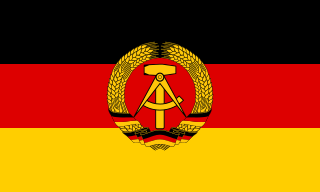
The 1994 Winter Olympics, officially known as the XVII Olympic Winter Games and commonly known as Lillehammer '94, were an international winter multi-sport event held from 12 to 27 February 1994 in and around Lillehammer, Norway. Having lost the bid for the 1992 Winter Olympics to Albertville in France, Lillehammer was awarded the 1994 Winter Games on 15 September 1988, two days before the 1988 Summer Olympics opening ceremonies at the 94th IOC Session in Seoul, South Korea. Due to the calendar changes made in 1986, this was the only time that the Winter Olympics took place two years after the previous Winter Games, and the first to be held in a different year from the Summer Olympics. This was also the first Winter Olympics to be held during the Commonwealth Games and FIFA World Cup year. This was the second Olympic Games of any type hosted in Norway — the first being the 1952 Winter Olympics in Oslo — and the fourth Olympics overall to be held in a Nordic country, after the 1912 Summer Olympics in Stockholm, Sweden, and the 1952 Summer Olympics in Helsinki, Finland. Lillehammer is the northernmost city ever to host the Olympic Games.

The 1984 Winter Olympics, officially known as the XIV Olympic Winter Games and commonly known as Sarajevo '84, were a winter multi-sport event held between 8 and 19 February 1984 in Sarajevo, Yugoslavia. It was the first Winter Olympic Games held in a Slavic language-speaking country, as well as the only Winter Olympics held in a communist country before the 2022 Winter Olympics in Beijing, China. It was the second consecutive Olympic Games held in a communist country, after the 1980 Summer Olympics in Moscow, Russian SFSR, Soviet Union.

Jens Weißflog is an East German and later German former ski jumper. He is one of the best and most successful ski jumpers in the history of the sport. Only Finns Matti Nykänen and Janne Ahonen, Poles Adam Małysz and Kamil Stoch and Austrians Gregor Schlierenzauer and Stefan Kraft have won more World Cup victories.
Nordic combined at the 1984 Winter Olympics, consisted of one event, held from 11 February to 12 February. The ski jumping portion took place at Igman Olympic Jumps, while the cross-country portion took place at Igman.

The FIS Ski Jumping World Cup is the world's highest level of ski jumping and the FIS Ski Flying World Cup as the subdivisional part of the competition. It was founded by Torbjørn Yggeseth for the 1979/80 season and organized by the International Ski Federation. Women began competing during the 2011/12 season.

Norway competed at the 2002 Winter Olympics in Salt Lake City, United States. The nation enjoyed its best ever results in gold medals, most notably in the biathlon events, when Ole Einar Bjørndalen swept all four gold medals.
Vegard Opaas is a Norwegian former ski jumper.

The Soviet Union (USSR) competed at the 1984 Winter Olympics in Sarajevo, Yugoslavia.

Austria competed at the 1984 Winter Olympics in Sarajevo, Yugoslavia.

Switzerland competed at the 1984 Winter Olympics in Sarajevo, Yugoslavia.

East Germany competed at the 1984 Winter Olympics in Sarajevo, Yugoslavia.

The Socialist Federal Republic of Yugoslavia was the host nation for the 1984 Winter Olympics in Sarajevo. Prior to these Games, Yugoslavia had never won a medal at the Winter Games, but Jure Franko won a silver medal in the men's giant slalom to become a national hero.

Japan competed at the 1984 Winter Olympics in Sarajevo, Yugoslavia.

Slovenia first participated as an independent nation at the Olympic Games at the 1992 Winter Olympics in Albertville, France, and the country has sent athletes to compete at every Games since then. The Slovenian Olympic Committee was established in 1991 and was recognised by the International Olympic Committee on 5 February 1992.

Igman Olympic Jumps, also known as Malo Polje, is a defunct ski jumping hill on the mountain of Igman in Ilidža, Sarajevo, Bosnia and Herzegovina. It consists of a large hill with a construction point (K-point) of 112 meters (367 ft) and a normal hill with a K-point of 90 meters (295 ft). Construction started in 1980 and the venue opened in 1982 to host ski jumping and Nordic combined at the 1984 Winter Olympics. The large hill event saw Finland's Matti Nykänen set the hill record of 116.0 meters (381 ft) in front of 90,000 spectators. No other International Ski Federation (FIS) sanctioned competitions have taken place at the hills. During the Siege of Sarajevo, the hills became a battleground and have since not been used. However, there are plans to rebuild the in-run, expand the large hill and build new spectator stands and visitor facilities.
The men's normal hill individual ski jumping competition for the 1984 Winter Olympics was held at Igman Olympic Jumps. It occurred on 9 February.

Andreas Wellinger is a German ski jumper. His career-best achievements include an individual gold and silver medal at the 2018 Winter Olympics. He also won a team gold medal at the 2014 Winter Olympics and a team silver medal at the 2018 Winter Olympics, mixed team gold at the 2017 and 2023 Ski Jumping World Championships, an individual silver medal at the 2017 and 2023 World Championships and individual silver medal at the 2024 Ski Flying World Championships.

Sport in Yugoslavia had a significant role in its culture and society. Team sports such as football, basketball, handball, volleyball and water polo had the biggest popularity. Of individual sports the most popular were tennis, athletics, alpine skiing, swimming, table tennis, ski jumping and chess. Yugoslavia made its debut at the Summer Olympics in 1920. Until its break up in 1992, it competed in 16 Summer and 14 Winter Olympic games and won a total of 87 medals in various summer and winter sports. Yugoslavia hosted its first and the only Winter Olympic games in 1984 in Sarajevo when Jure Franko won country's first Winter Olympic medal, silver in alpine skiing.















